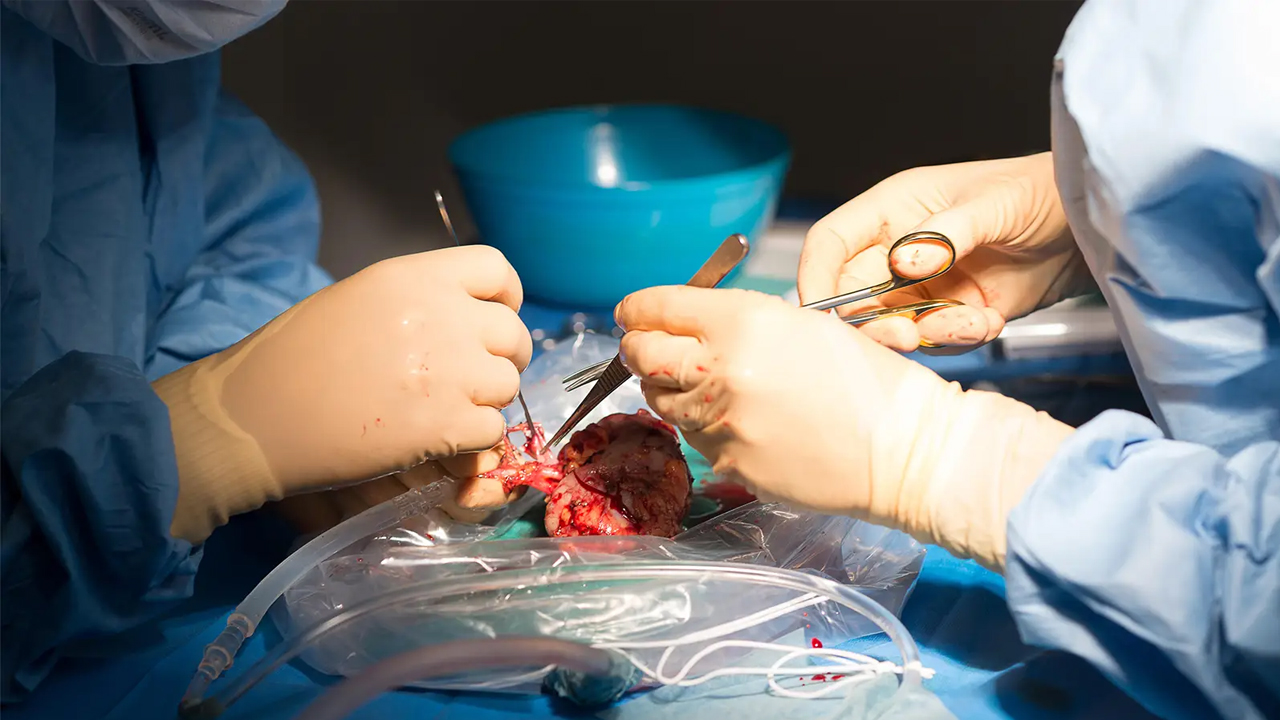A kidney transplant or renal transplant is the last treatment option for End-Stage Renal Disease (ESRD). It involves major surgery in which the person with kidney failure is transplanted with a new kidney. The new kidney can be of a dead or live person. The kidney transplant makes life longer and healthier.
We need at least one healthy kidney in order to function properly. The transplanted kidney is not replaced, rather is placed in another area of the abdomen. The average lifespan of a transplanted kidney is 12-15 years, though some transplants can last longer.
Requirements for a kidney transplant
Good physical health – The doctor might ask you to go for a complete medical exam and different series of exams to screen for medical conditions that may affect your treatment outcomes.
Kidney donor match – The kidney to be transplanted should definitely match the donor’s tissue and blood type. People with blood group O are “Universal donors” and can donate to anyone while people with blood group AB are “Universal recipients” and can receive from anyone.
The correct time – early intervention is key to success. It is best to opt for transplanting before you actually need dialysis. As the average wait time is 3-5 years, people waiting for kidney donors have to wait for this much.
Benefits
- No need for dialysis
- Feeling more energetic
- Achieving better overall health
- Having fewer restrictions on diet
Risk factors after transplanting
- Kidney not functioning – the new kidney doesn’t start functioning the moment it is operated on, it needs some time, and meanwhile, you will have to go for dialysis.
- Cancer – Medicines taken after transplantation can get you more vulnerable to the disease.
- Diabetes – Post-treatment medicines may cause diabetes
- Stroke – Transplantation puts you at higher risk for heart diseases.
- Kidney failure - The average lifespan of a transplanted kidney is 12-15 years; thus, you might have to go for a second transplant or dialysis.
Side-effects
- Narrowing of arteries
- Infection
- Bleeding
- Weight gain
- Blood clots
- High blood pressure
Before kidney transplant surgery, take the right nutritious diet as eating healthy can help you recover fast. Don’t stress your body. Clear all your queries related to surgery with your doctor in advance.
After kidney transplant surgery, the doctor may ask you to come for regular checkups. The doctor will be monitoring you while you come for check-ups. You might be asked to take immunosuppressants—drugs that will help prevent your body from rejecting your new kidney.
A kidney transplant or renal transplant is the last treatment option for End-Stage Renal Disease (ESRD). It involves major surgery in which the person with kidney failure is transplanted with a new kidney. The new kidney can be of a dead or live person. The kidney transplant makes life longer and healthier.
We need at least one healthy kidney in order to function properly. The transplanted kidney is not replaced, rather is placed in another area of the abdomen. The average lifespan of a transplanted kidney is 12-15 years, though some transplants can last longer.
Requirements for a kidney transplant
Good physical health – The doctor might ask you to go for a complete medical exam and different series of exams to screen for medical conditions that may affect your treatment outcomes.
Kidney donor match – The kidney to be transplanted should definitely match the donor’s tissue and blood type. People with blood group O are “Universal donors” and can donate to anyone while people with blood group AB are “Universal recipients” and can receive from anyone.
The correct time – early intervention is key to success. It is best to opt for transplanting before you actually need dialysis. As the average wait time is 3-5 years, people waiting for kidney donors have to wait for this much.
Benefits
- No need for dialysis
- Feeling more energetic
- Achieving better overall health
- Having fewer restrictions on diet
Risk factors after transplanting
- Kidney not functioning – the new kidney doesn’t start functioning the moment it is operated on, it needs some time, and meanwhile, you will have to go for dialysis.
- Cancer – Medicines taken after transplantation can get you more vulnerable to the disease.
- Diabetes – Post-treatment medicines may cause diabetes
- Stroke – Transplantation puts you at higher risk for heart diseases.
- Kidney failure - The average lifespan of a transplanted kidney is 12-15 years; thus, you might have to go for a second transplant or dialysis.
Side-effects
- Narrowing of arteries
- Infection
- Bleeding
- Weight gain
- Blood clots
- High blood pressure
Before kidney transplant surgery, take the right nutritious diet as eating healthy can help you recover fast. Don’t stress your body. Clear all your queries related to surgery with your doctor in advance.
After kidney transplant surgery, the doctor may ask you to come for regular checkups. The doctor will be monitoring you while you come for check-ups. You might be asked to take immunosuppressants—drugs that will help prevent your body from rejecting your new kidney.
(Disclaimer: The content on this site is for informational purposes only, and should not be taken as professional medical advice. Always seek the guidance of your doctor or other health professionals for any questions you may have regarding your health or a medical condition.)

 A kidney transplant or renal transplant is the last treatment option for End-Stage Renal Disease (ESRD). The new kidney can be of a dead or live person, it can make life longer and healthier. Let’s know some possible dos and don’ts for kidney transplant surgery.
A kidney transplant or renal transplant is the last treatment option for End-Stage Renal Disease (ESRD). The new kidney can be of a dead or live person, it can make life longer and healthier. Let’s know some possible dos and don’ts for kidney transplant surgery.










.jpg)

.jpeg)







.jpeg)





.jpg)





